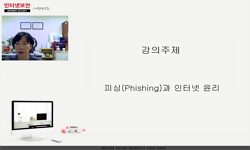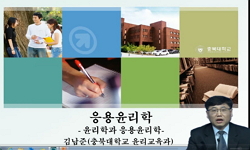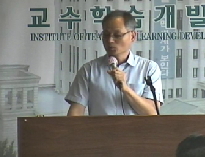Wide reflective equilibrium (WRE) was first presented by John Rawls and developed by Norman Daniels. It was thought of primarily as a method for evaluating theories of justice (Rawls) or ethical theories (Daniels). Tom L. Beauchamp and James F. Childr...
http://chineseinput.net/에서 pinyin(병음)방식으로 중국어를 변환할 수 있습니다.
변환된 중국어를 복사하여 사용하시면 됩니다.
- 中文 을 입력하시려면 zhongwen을 입력하시고 space를누르시면됩니다.
- 北京 을 입력하시려면 beijing을 입력하시고 space를 누르시면 됩니다.
https://www.riss.kr/link?id=A104130171
-
저자
최경석 (이화여자대학교)
- 발행기관
- 학술지명
- 권호사항
-
발행연도
2008
-
작성언어
Korean
-
주제어
biomedical ethics ; moral reasoning ; Wide Reflective Equilibrium ; judgment ; principlism ; casuistry ; practical syllogism ; justification of judgment ; 생명의료윤리 ; 도덕적 추론 ; 넓은 반성적 평형 ; 판단력 ; 원칙주의 ; 사례중심주의 ; 실천적 삼단논법 ; 판단의 정당성
-
등재정보
KCI등재
-
자료형태
학술저널
-
수록면
65-84(20쪽)
-
KCI 피인용횟수
9
- 제공처
-
0
상세조회 -
0
다운로드
부가정보
다국어 초록 (Multilingual Abstract)
Wide reflective equilibrium (WRE) was first presented by John Rawls and developed by Norman Daniels. It was thought of primarily as a method for evaluating theories of justice (Rawls) or ethical theories (Daniels). Tom L. Beauchamp and James F. Childress then considered WRE as an explicit methodology for biomedical ethics, that is, moral reasoning for the justification of moral judgments. Thus, I characterize the method of WRE as practical moral reasoning.
The process of reaching a conclusion using the methods of WRE is characterized as a back-and-forth process of revision aimed at coherent comprehensive personal or group belief systems without incorrect beliefs. The question arises, however, as to whether the methods of WRE can give us determinate answers about what to do. But there must be different ways of revising beliefs depending on the exercise of judgment as a faculty of thinking. There is no algorithmic decision procedure. Some may expect a mechanical decision procedure by which to reach answers to the above questions, but this is misconceived.
Our decision in unprecedented or unpredictable situations and circumstances cannot help calling for judgment. Judgment is not unique to the methods of WRE. Other methods, such as principlism and casuistry, also rely on judgment.
When principlists attempt to apply moral principles to a particular case, they must decide which of their moral principles covers the case, just as a judge would have to decide which law or regulation is relevant to a given case. Because principles are abstract and general, they must be interpreted in the light of the details of the particular case. Thus, we arrive at conclusions from the interaction between universal knowledge(major premise) and particular knowledge(minor premise) in a practical syllogism.
Casuists also call for the use of judgment. They usually suggest the use of analogical thinking employing paradigm cases. Similarities must be sought between a given case and paradigm cases. However, the recognition of similarity is not a mechanical procedure it requires judgment to determine which features of two cases being compared are relevant.
The need for judgment implies that there are no determinate answers for resolving a conflict between two arguers following same method of reasoning. But the exercise of judgment is not a matter of mere taste or arbitrary preference. It requires its justification.
There may be some principles and values to guide and regulate the exercise of judgment required in the methods of WRE. First, coherence, comprehensiveness, and the number of incorrect beliefs are not only criteria for comparing competing belief systems, but will also be values for a revision process. Second, we will pursue the maximization of coherence and comprehensiveness while minimizing revision, by revising peripheral beliefs rather than core beliefs in our belief system. Third, the efficiency of a revision process may be one of the important considerations tied to the choice of provisionally fixed beliefs.
다국어 초록 (Multilingual Abstract)
Wide reflective equilibrium (WRE) was first presented by John Rawls and developed by Norman Daniels. It was thought of primarily as a method for evaluating theories of justice (Rawls) or ethical theories (Daniels). Tom L. Beauchamp and James F. Childr...
Wide reflective equilibrium (WRE) was first presented by John Rawls and developed by Norman Daniels. It was thought of primarily as a method for evaluating theories of justice (Rawls) or ethical theories (Daniels). Tom L. Beauchamp and James F. Childress then considered WRE as an explicit methodology for biomedical ethics, that is, moral reasoning for the justification of moral judgments. Thus, I characterize the method of WRE as practical moral reasoning.
The process of reaching a conclusion using the methods of WRE is characterized as a back-and-forth process of revision aimed at coherent comprehensive personal or group belief systems without incorrect beliefs. The question arises, however, as to whether the methods of WRE can give us determinate answers about what to do. But there must be different ways of revising beliefs depending on the exercise of judgment as a faculty of thinking. There is no algorithmic decision procedure. Some may expect a mechanical decision procedure by which to reach answers to the above questions, but this is misconceived.
Our decision in unprecedented or unpredictable situations and circumstances cannot help calling for judgment. Judgment is not unique to the methods of WRE. Other methods, such as principlism and casuistry, also rely on judgment.
When principlists attempt to apply moral principles to a particular case, they must decide which of their moral principles covers the case, just as a judge would have to decide which law or regulation is relevant to a given case. Because principles are abstract and general, they must be interpreted in the light of the details of the particular case. Thus, we arrive at conclusions from the interaction between universal knowledge(major premise) and particular knowledge(minor premise) in a practical syllogism.
Casuists also call for the use of judgment. They usually suggest the use of analogical thinking employing paradigm cases. Similarities must be sought between a given case and paradigm cases. However, the recognition of similarity is not a mechanical procedure it requires judgment to determine which features of two cases being compared are relevant.
The need for judgment implies that there are no determinate answers for resolving a conflict between two arguers following same method of reasoning. But the exercise of judgment is not a matter of mere taste or arbitrary preference. It requires its justification.
There may be some principles and values to guide and regulate the exercise of judgment required in the methods of WRE. First, coherence, comprehensiveness, and the number of incorrect beliefs are not only criteria for comparing competing belief systems, but will also be values for a revision process. Second, we will pursue the maximization of coherence and comprehensiveness while minimizing revision, by revising peripheral beliefs rather than core beliefs in our belief system. Third, the efficiency of a revision process may be one of the important considerations tied to the choice of provisionally fixed beliefs.
참고문헌 (Reference)
1 John Hardwig, "“Is There a Duty to Die,” in Ethical Issues in Modern Medicine, 5th edition, edited by John D. Arras and Bonnie Steinbock" Mayfield Publishing Company 292-301, 1999
2 John McDowell, "Virtue and Reason" 62 (62): 336-, 1979
3 R. M. Hare, "The Language of Morals" Oxford University Press 56-, 1952
4 Marcus George Singer, "The Ideal of a Rational Morality" 60 : 26-27, 1986
5 Martin Benjamin, "Splitting the Difference: Compromise and Integrity in Ethics and Politics" University Press of Kansas 112-, 1990
6 비췀, "Principles of Biomedical Ethics(5th edition)" Oxford University Press 384-413, 2001
7 Onora O’Neill, "Practical Principles and Practical judgment" 31 (31): 18-, 2001
8 O’Neill, "Practical Principles and Practical judgment"
9 Tomlinson, "Casuistry in Medical Ethics: Rehabilitated, or Repeat Offender?"
10 Tom Tomlinson, "Casuistry in Medical Ethics: Rehabilitated, or Repeat Offender?" 15 : 6-, 1994
1 John Hardwig, "“Is There a Duty to Die,” in Ethical Issues in Modern Medicine, 5th edition, edited by John D. Arras and Bonnie Steinbock" Mayfield Publishing Company 292-301, 1999
2 John McDowell, "Virtue and Reason" 62 (62): 336-, 1979
3 R. M. Hare, "The Language of Morals" Oxford University Press 56-, 1952
4 Marcus George Singer, "The Ideal of a Rational Morality" 60 : 26-27, 1986
5 Martin Benjamin, "Splitting the Difference: Compromise and Integrity in Ethics and Politics" University Press of Kansas 112-, 1990
6 비췀, "Principles of Biomedical Ethics(5th edition)" Oxford University Press 384-413, 2001
7 Onora O’Neill, "Practical Principles and Practical judgment" 31 (31): 18-, 2001
8 O’Neill, "Practical Principles and Practical judgment"
9 Tomlinson, "Casuistry in Medical Ethics: Rehabilitated, or Repeat Offender?"
10 Tom Tomlinson, "Casuistry in Medical Ethics: Rehabilitated, or Repeat Offender?" 15 : 6-, 1994
11 Arthur Caplan, "Can Applied Ethics Be Effective in Health Care and Should It Strive to Be?" 93 : 314-, 1983
동일학술지(권/호) 다른 논문
-
- 한국법철학회
- 이재승
- 2008
- KCI등재
-
- 한국법철학회
- 고봉진
- 2008
- KCI등재
-
- 한국법철학회
- 강희원
- 2008
- KCI등재
-
- 한국법철학회
- 서윤호
- 2008
- KCI등재
분석정보
인용정보 인용지수 설명보기
학술지 이력
| 연월일 | 이력구분 | 이력상세 | 등재구분 |
|---|---|---|---|
| 2026 | 평가예정 | 재인증평가 신청대상 (재인증) | |
| 2020-01-01 | 평가 | 등재학술지 유지 (재인증) |  |
| 2017-01-01 | 평가 | 등재학술지 유지 (계속평가) |  |
| 2013-01-01 | 평가 | 등재학술지 유지 (등재유지) |  |
| 2010-05-10 | 학술지명변경 | 외국어명 : Korean Journal of Philosophy -> Korean Journal of Legal Philosophy |  |
| 2010-01-01 | 평가 | 등재학술지 유지 (등재유지) |  |
| 2008-01-01 | 평가 | 등재학술지 유지 (등재유지) |  |
| 2005-05-31 | 학술지명변경 | 외국어명 : 미등록 -> Korean Journal of Philosophy |  |
| 2005-01-01 | 평가 | 등재학술지 선정 (등재후보2차) |  |
| 2004-01-01 | 평가 | 등재후보 1차 PASS (등재후보1차) |  |
| 2003-01-01 | 평가 | 등재후보학술지 선정 (신규평가) |  |
학술지 인용정보
| 기준연도 | WOS-KCI 통합IF(2년) | KCIF(2년) | KCIF(3년) |
|---|---|---|---|
| 2016 | 0.84 | 0.84 | 0.76 |
| KCIF(4년) | KCIF(5년) | 중심성지수(3년) | 즉시성지수 |
| 0.66 | 0.64 | 1.024 | 0.18 |




 KCI
KCI DBpia
DBpia




